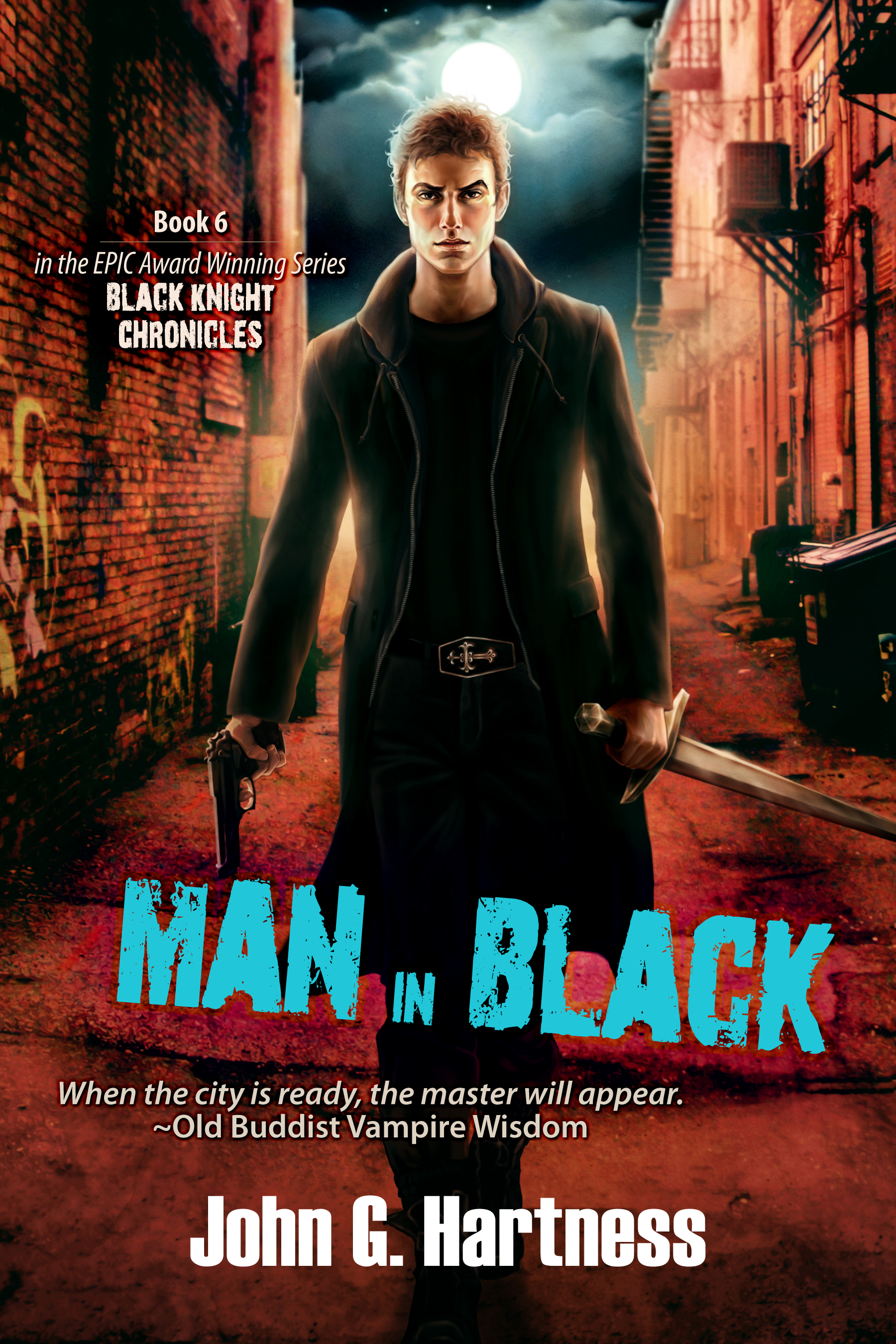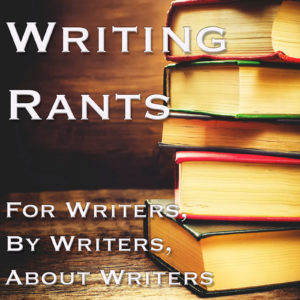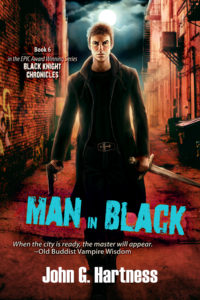
by john | Aug 15, 2016 | Business of publishing, Writing
 Part 1 of this post got a lot of traffic, generated a fair amount of Facebook discussion, pissed some people off, and hopefully was useful to some of you. It also spawned my new podcast, Writing Rants, which is coming soon right to this here web space.
Part 1 of this post got a lot of traffic, generated a fair amount of Facebook discussion, pissed some people off, and hopefully was useful to some of you. It also spawned my new podcast, Writing Rants, which is coming soon right to this here web space.
I do want to clarify one thing about these two posts – if you are a multi-published author, most of this isn’t going to apply to you. If you have been working in the business for a while, you get to use adverbs, you get to start a story in the wrong place (#2 on the list – spoiler alert) and you sometimes get to use passive voice. Because you have been working in the field long enough to know how to do those things. Presumably.
But at least you have enough equity built up with editors through your publication history that we (I) are willing to give you a shot. If I know you, if we’ve met at a con and shared a table together, you get a lot more leeway than someone who I know nothing about. If your query letter comes in with a list of half a dozen published novels or a dozen or so published short stories, then I assume that if it starts off oddly, you know what you’re doing, and I’ll give you a little more time than someone who has no credits.
That’s not fair. I know. I also know that it isn’t fair I got cut from my Little League team. Bullshit. It’s totally fair, and it’s fine. I got cut from the team because I was too green and not athletic enough. Why did your story get rejected? Well, let’s continue on to the top two reasons I reject a submission.
#2 – Your story starts in the wrong place – I see this taking two forms. In the first, there are certain beginnings that cliché, or at least cliché for certain genres, and I just don’t want to see them. Here are a few things to avoid when submitting –
- Starting off in a dream – Don’t do it. It’s trite, it’s over done, and very seldom done well. Particularly avoid being clever and tricking the audience into thinking that what’s happening in the dream is actually part of the narrative, then jumping out of the metaphorical closet and yelling “GOTCHA!” it doesn’t make you a clever writer, it makes you a douche. And it makes you unreliable to the readers. Remember that every word you put onto the page is part of your contract with the readers, and if they don’t trust you, they will not be invested in the story.
- Getting up in the morning – Reading about someone getting ready for school or work isn’t interesting. We all get ready for school or work every day. Unless there’s something reaching through the mirror while your protagonist is shaving, don’t tell me they shave. Start in the action.
- Starting away from the protagonist – Unless you’re writing a thriller, and you’re starting the book with the Terrible Thing being performed by the villain, and we’re going to return tot he villain’s POV every once in a while throughout the book, Don’t start the book anywhere but focused on the protagonist. You have limited time to introduce the main character and get the audience to love her. Because they downloaded the first 10% for free on their Kindle, and if you don’t hook them in the sample, you won’t get them to buy the rest of the book. I know I download a LOT of samples, and I buy very few of the books I sample. If you want an example of a book that hooks you from the jump and almost forces you to buy it once you read the sample, try Alice
 by Christina Henry. It’s a helluva book and hooked me from the beginning.
by Christina Henry. It’s a helluva book and hooked me from the beginning.
Of Lips and Tongue by AG Carpenter is one that didn’t just hook me from the beginning of the book, it hooked me from the first line of the query letter. “Delaney Green is one of them that don’t burn.” It puts me into the world of the story in one line. I know that it’s Southern. I know that it’s supernatural. I know that supernatural things are somewhat accepted. I know that the character is locked askance at because of her abilities. I got all that from the first sentence of the query letter. I bought the novella, and two more.
In the second, the story just doesn’t do anything in the beginning. Sometimes an author spends too much time setting things up and introducing characters, and not enough time moving the action along and hooking a reader. Remember that I am a genre fiction reader, I’m a genre fiction publisher, and a genre fiction writer. We are not working in the literary fiction world, we are writing potboilers and page-turners. Shit has to happen. And it has to happen from the beginning. It’s not necessary that there be a fight scene on Page 1, but it’s also not bad.
With my book Genesis, the first draft of the book was awful. I started the book 100% in the wrong place. The premise of the movie is Red Dawn meets X-Men: First Class. An EMP destroys the world’s technology, and without the interference of all the tech, people are able to harness the elemental magic of the earth again. This ability only manifests itself in teenagers and people who are more open to change and magic (hippies). I started the book with the protagonist getting ready for school. Then I realized that no one gives a shit about that. so I started the book at the point where the EMP has hit and she and her brother are hauling ass out of the school. The book works much better when it starts in the right place.
By the way, Genesis has recently been uploaded for audiobook, so that will be available soon!
And I’m almost at my thousand word limit, so you’ll have to wait a little while to find out The #1 Reason Why I Rejected Your Manuscript.
And now time for a little shameless self-promotion –
 Black Knight Chronicles #6 – Man in Black
Black Knight Chronicles #6 – Man in Black releases today! It’s my book birthday, and yesterday was my birth birthday! So if you want to show the love, go buy the book! If you don’t have $6 to buy Man in Black, check out one of my other books. The Black Knight Chronicles Omnibus
releases today! It’s my book birthday, and yesterday was my birth birthday! So if you want to show the love, go buy the book! If you don’t have $6 to buy Man in Black, check out one of my other books. The Black Knight Chronicles Omnibus , collecting books 1-3, is on sale for $2.99.
, collecting books 1-3, is on sale for $2.99.
And if you have Kindle Unlimited, you can read most of my other work for free! For just $9.99 per month, you can read every Bubba the Monster Hunter story, every Quincy Harker story, and a ton of my other work as often as you like! And right now you can try KU for free for 30 days. Just click Join Amazon Kindle Unlimited 30-Day Free Trial.
If you like these blog posts, and want to see more of them, you can head over to my Patreon and pledge your support. I’ve changed my rewards around a bit, and there are some improved perks at different patron levels, so go check it out and fund my convention travel budget.


by john | Aug 5, 2016 | Appearances, Business of publishing, Writing
Since opening up Falstaff Books, I’ve been dealing with more submissions than ever. This is awesome, because submissions, particularly unsolicited submissions (or “slush”) is how we build anthologies and a catalog. I, just like every editor and publisher I know, am excited every time I open a query letter and start to read the attachment. I want to find the next amazing book or story, because if I publish it, not only do I get to help bring an amazing book to life, but we all get paid. Remember, a reputable publisher doesn’t make any money unless you make money. Unfortunately, most of what comes in on submission gets rejected, and I want to touch on some of my personal top reasons that your story or novel gets rejected. Some of these are pet peeves, and in a world where my time is incredibly limited, it only takes hitting one hot button to get your book or story rejected. So here, in reverse order, are John’s (and John’s alone) Top 5 Reasons I Will Reject Your Book or Story. I’ll bring you Part 2 next week, because this is running long.
5) Bad Timing – sometimes you honestly just get screwed, and you submit a story or novel (for here on out, I’m just going to call them books) that is too similar to something we just acquired, or too much like something else on the market. For example, if you have a great idea for an urban fantasy series about a male wizard for hire in Indianapolis named Barry Teasden who has a spirit trapped inside a gargoyle on his desk, I’m probably going to pass. Frankly, if you have any kind of urban fantasy detective story, I’m probably going to pass unless it’s 100% goddamn amazing, and there’s something to set it apart from any of the dozens of urban fantasy detective series out there. Including the ones written by the publisher.
But a lot of times you can’t know that we’ve just bought a story in the same genre as yours, or have something on the docket that hits many of the same check marks. For example, it would be hard to know that we aren’t the place to send your “changeling travels to Fairy in search of her absentee parent – hilarity does not ensue” novel, because Changeling’s Fall hasn’t released yet. But it will come out late summer/early fall, and it is the first in a series of four novels about that set of characters. So that’s great for us, because it’s an amazing book, but it’s not great for writers of similar books, because that market is now closed to them.
4) Didn’t Follow the Guidelines – When I worked in the lighting business, I was a middle manager. I had a dozen people that reported to me, and I was responsible for hiring and firing them. One thing I was always looking for in people was a college degree. Not that I thought you needed a degree to do the job, because you certainly don’t. But because having a degree was a shortcut to show an employer that you are capable of sticking with one task for a long time and completing it. Submission guidelines are the same thing.
What am I saying? I’m saying that I’m perfectly capable of quickly reformatting your submission into the typeface, font size, and spacing that is easiest for me to read. Take me less than a minute. And that’s not the point. The point is – are you someone who pays attention to detail, or are you a pain the ass? Do you understand that this is a business relationship, and as such there are ways to do things and ways not to do things, or are you a special friggin’ snowflake that I’m going to have to remind to do everything and hound about missed deadlines?
Submission guidelines are a test, like Van Halen’s green M&Ms. The band never gave a single shit about the color of the M&Ms, but a venue that took the time to either adjust the tour rider to take out the stupid line about the green M&Ms, or took the time to pick out the green M&Ms, was a venue that was paying attention to details. And that’s a venue that’s probably going to have the right safety equipment, the right number of backstage passes for family and guests, and won’t have food in catering that the band is allergic to. A writer who follows the submission guidelines to the letter is probably a writer that will respond to edits quickly and succinctly, will get their shit turned in on time, and generally will behave like a professional.
So follow the goddamn guidelines.
3) Book or Story needs work – Nobody’s first draft is worth a damn. Not mine, not yours, not Neil friggin’ Gaiman’s. So polish your work before you send it out for someone to potentially purchase. Have someone help you polish it. There are critique groups everywhere in the world, including online critique groups for people who live in rural areas and don’t have enough people close by. Use one.
Note – I am not suggesting that you pay an editor to polish a book that you want to sell to a publisher. That’s what we do. It’s our job to handle that level of editorial. But I am saying make friends with writers who are where you are in your career, and work together so that all of you get better. Having someone to put fresh eyeballs on your work will help with things like homonyms and words that either aren’t spelled like you think they’re spelled or words that do not mean what you think they mean.
Here are a few things that will kill the submission before it really gets going. Remember, these are things I don’t care for, but they aren’t universal. They’re pretty close, though. Eliminate these things from your storytelling and it will help you make more money as a writer.
Passive Voice – People need to do things, not have things done to them. Brutus needs to stab Caesar, we don’t need to hear that Caesar was stabbed by Brutus. If your POV character keeps having things done to her, then maybe she shouldn’t be your POV character. Or maybe you should write from a closer POV, so we can understand her reaction to these things better. But get rid of passive voice.
“To Be” – It’s really not to be. The more instances of “was, were, are” you can eliminate from your writing, the more immediate you can make it. Use strong, active verbs to tell the reader what’s going on in the scene. I wasn’t standing by the bar watching the room, I stood by the bar watching the room. I am not sitting at my desk writing a blog post, I sit at my desk writing a blog post. The various conjugations of “to be” distance the reader from the action and reduce the immersion of the character into their surroundings. It blunts the edges of your writing, makes it dull.
Adverbs – You get one per every 50,000 words. You can have them back when you’ve published a million words of fiction. Don’t argue with me, just cut out the annoyingly ever-present and ridiculously repetitive adverbs.
That’s enough for Part 1. I’ll come back next week with the next two pieces of the puzzle – Your Story Starts in the Wrong Place, and You Aren’t a Good Enough Writer (Yet). I figure if these didn’t piss everybody off, those certainly will!
If you loved this, hated it, or just want to meet me live and in person, come say hi at the Charlotte Comicon, this Sunday, August 7, from 10AM – 5PM at the Embassy Suites in Concord, NC. More information here.
If you love my work and these blog posts and want to keep me writing, feel free to visit my Patreon page. I give away all sorts of free stuff to my patrons, including autographed books from my collection, free audiobooks, and free ebooks.
Black Knight #6, Man In Black, is available August 15th, just after my birthday! You can pre-order it now!

 Part 1 of this post got a lot of traffic, generated a fair amount of Facebook discussion, pissed some people off, and hopefully was useful to some of you. It also spawned my new podcast, Writing Rants, which is coming soon right to this here web space.
Part 1 of this post got a lot of traffic, generated a fair amount of Facebook discussion, pissed some people off, and hopefully was useful to some of you. It also spawned my new podcast, Writing Rants, which is coming soon right to this here web space.by Christina Henry. It’s a helluva book and hooked me from the beginning.
 Black Knight Chronicles #6 – Man in Black
Black Knight Chronicles #6 – Man in Black releases today! It’s my book birthday, and yesterday was my birth birthday! So if you want to show the love, go buy the book! If you don’t have $6 to buy Man in Black, check out one of my other books. The Black Knight Chronicles Omnibus
, collecting books 1-3, is on sale for $2.99.





